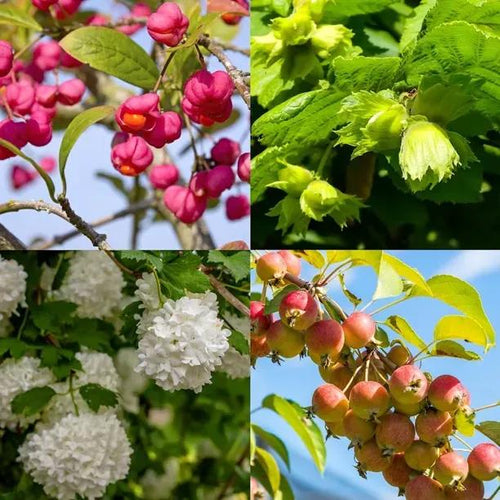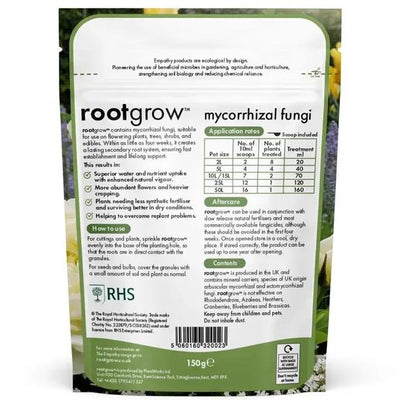
Wildlife & Game Cover Thornless Shrubs
Mix of 5 Species in Bundles of 50 Plants
 Delivered across the UK
Delivered across the UK Which Best Plant Supplier 2025
Which Best Plant Supplier 2025 1 Year Bareroot Plant Guarantee
1 Year Bareroot Plant Guarantee
About Wildlife & Game Cover Thornless Shrubs
Wildlife & Game Cover Thornless Shrubs
This pack of 50 mixed bushes & shrubs is intended for planting as shelter for game animals and wildlife. It's not for planting as a hedge. You can order the same plants individually from their respective pages, but you will save money on the same size plants by buying the pack.
We will choose the plants that go into the mix from the following list: we regret that we cannot accept requests for specific plants to be used in your pack. If you want to be certain of having a particular plant in your mix, please order it separately.
Features
- 20% each of 5 species from: Cherry Laurel, Shrub Honeysuckle, Hazel, Alder Buckthorn, Hornbeam, Wild Privet.
These plants are mainly evergreen or semi-evergreen and thornless, so they provide year-round cover for animals, and they're easy for beaters and gamekeepers to walk through. They'll produce fruit for birds to eat and their flowers & leaves will support bees and butterflies, but for the most part these plants aren't appealing food for deer and other grazing animals.
You can plant these shade-tolerant plants in existing woodland or out in the open to create a new copse.
Although all of the plants in this pack make good hedging on their own, they're not really suitable for planting together in a mixed hedge. The big plants like the cherry laurel would constantly be out-growing the smaller ones.
Game Cover hedge packs are only delivered bareroot, during winter (November - March).
The plants in this pack will be 30-80cm tall when we deliver them. All our hedge plants are measured by their height in centimetres above the ground (the roots aren't measured).
Spacing Game Cover plants:
This pack isn't intended for a hedge. It's meant to be planted randomly and allowed to grow freely to create natural looking cover for wildlife.
You can decide on planting distances to suit your site: 2 metres between each plant will make a fairly dense thicket that is still quite easy to walk through. Planting them more closely together will provide more shelter for very exposed sites. Planting them further apart will increase visibility and make it easier for groups of people to walk through it.












 Secure, One-Tap Checkout
Secure, One-Tap Checkout
 Hand Picked, Delivered to Your Door!
Hand Picked, Delivered to Your Door! 1 Year Bareroot Guarantee
1 Year Bareroot Guarantee





